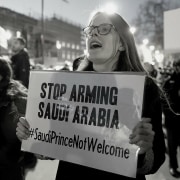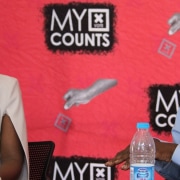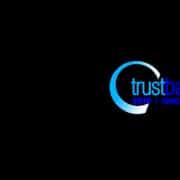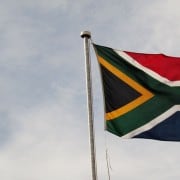|
Getting your Trinity Audio player ready...
|
Business is the most trusted sector in the world, above non-governmental organisations (NGOs), media, and governments. This is one of the surprising findings of the 24th Edelman Trust Barometer (ETB), released by global communications firm Edelman earlier in 2024. The ETB measures the level of trust in governments, the media, business, and NGOs in 28 countries, of which South Africa is one. This year some 32 000 respondents were asked for their views and experiences, equating to around 1 150 respondents per country.
Trust is the ultimate currency in the relationship that all institutions — business, governments, NGOs and media — build with their stakeholders, says the company. “Trust defines an organisation’s license to operate, lead, and succeed. Trust is the foundation that allows an organisation to take responsible risk, and, if it makes mistakes, to rebound from them. Without trust, credibility is lost and reputation can be threatened.”
South Africans are familiar with the concept of trust, especially in government. The Department of Planning, Monitoring and Evaluation (DPME), in a 2021 policy brief on that very topic, acknowledged evidence showing that: “Trust in government has been falling over the years.”
It is important to halt the decline, as the DPME further stated: “Competence of government to deliver services at the level, quality, and timely expectation of citizens is the foundation of a capable state. Together with intentions of government to be accountable, transparent, and to implement public policy with integrity, fairness, and commitment towards developmental outcomes, have the combined influence of strengthening trust among citizens and by citizens in institutions.”
Inequality, corruption, social cohesion, violence, and crime were factors that the policy brief specifically pointed out as contributing to declining trust in government. “The urgency to address citizen trust in state institutions and social cohesion is further demonstrated by the recent [2021] outbreak of civil unrest in the country.”
In its 2024/2025 annual performance plan, the DPME noted that: “Trust in government remains relatively low. This erosion of trust has resulted in reduced public participation in democratic processes, increased civil unrest, and an overall scepticism regarding the efficacy of governance.”
Business most trusted
The average percentage of trust in business currently stands at 63, which tips it into the trusted zone (60-100) on the ETB trust scale. Next is the NGO sector on 59, government on 51, and media on 50. The latter three fall into the neutral range (50-59), meaning that not only is business the most trusted institution, but it is at present the only trusted one.
Business is trusted in 15 of 28 countries, including South Africa. The UK and South Korea are the only two countries falling into the distrust range (1-49) in this regard – the remaining 11 are neutral.
The most trusted business sectors are tech, food, and health, said Edelman CEO Richard Edelman at the report launch – but this doesn’t mean that those who trust the sectors will trust in their respective big innovations. A trust in tech does not automatically translate to trust in AI, for instance. “There’s no carry-along.”
NGOs, meanwhile, are trusted in 12 of the 28 countries – including South Africa. Government is trusted in a mere eight of the 28 countries, and the media is trusted in only nine. In the latter institution, search engines are the most trusted source of general news and information, followed by traditional media, owned media, and social media firmly in the last place.
Sixty percent of respondents, on average, believe that government leaders, CEOs, and journalists lie to them intentionally. In South Africa these individual percentages are 82, 70, and 69, respectively. These three institutions purposely try to mislead people by saying things they know are false or gross exaggerations, said respondents.
Another eye-opening revelation is that developing countries are leading on trust – in other words, the average percent trust in NGOs, business, government, and media in developing countries is higher than in developed countries. In the former the average overall percentage of trust stands at an average 63, while in the latter it is 49.
“Developing countries are far ahead of developed countries in trust,” said Edelman, “because their economies perform better [on average].”
The institutions of not one single G7 country are trusted by the constituents of those countries, and for the first time the UK has dropped to the very bottom of the trust barometer with a meagre 39 percentage points of trust. Neither did the other G7 countries shine, including Canada (53); Italy (50); France (47), US (46); Germany (45); and Japan (39, the same as the UK).
Among the top 10 most trusted countries, Kenya (64) and Nigeria (61) come in at nine and 10, with China (79), India (76), and United Arab Emirates (74) topping the table. The least trusted countries are the UK, Japan, and Argentina – all three achieved 39, though the UK is placed last.
South Africa
In South Africa the average percentage of trust across the four institutions in 2023 was 47 and in 2024 it rose two points to 49, which is the 2024 global average for developed countries, and better than five of the G7 countries.
The country debuted on the ETB in 2014 with its government receiving an unimpressive trust rating of 17. Things have improved since those days, but not much. In recent years, the South African government has consistently been rated on the ETB as one of those least deserving of people’s trust, out of the 28 jurisdictions polled. The latest edition tells the same story – the government, on 29, is the second-least trusted of all, as it was in 2023. Only the Argentinean government on 21 (a point better than in 2023) fared worse.
However, trust in South Africa’s government did rise by seven points from 22 in 2023 – this is considered a significant change, according to the ETB.
But when responses are plotted on a quadrant chart, government is seen as both incompetent and unethical, while NGOs and business are seen as ethical and competent – the latter a significant 100 points ahead of government in terms of competency. The media falls in between, seen as less competent and less ethical, but not entirely so.
In terms of who people trust to tell them the truth, especially about new innovations and technologies, South African respondents say they trust their peers most (78), followed by scientists (68). This is on par with the global average of 74 for both scientists and peers. Government leaders are at the bottom, on 27.
The ETB team refers to this phenomenon as ‘dispersion of authority’ – an increasing reliance on ‘someone like me’ to the point where that someone is trusted as much as a scientist. It is an outcome of the Covid-19 pandemic, says Edelman, and it undermines authority in science.
Innovation taking strain
Furthermore, the ETB research revealed a rift between innovation and society that has become a new factor causing further polarisation. As a result the ETB 2024 focuses strongly on factors involving innovation.
By a two to one margin, people in 24 of the 28 markets said innovation is being poorly managed. “Innovation should be a great trust builder,” said Edelman, “but at the moment it is a trust detractor.”
He compared the potential damage, should business not work to counter the trend, to that of 2008, when business lost massive trust worldwide because of the collapse of financial markets.
Interestingly, resistance to innovation is seen as strongly politicised especially in Western democracies, with the right showing far greater resistance then the left – the biggest difference is in the US at 41 percentage points, followed by Australia (23), Germany (20), and Canada (18).
“Innovation is accelerating and should be a growth enabler, but it will be stymied if business doesn’t pay as much attention to acceptance as it does research and development,” said Edelman.








